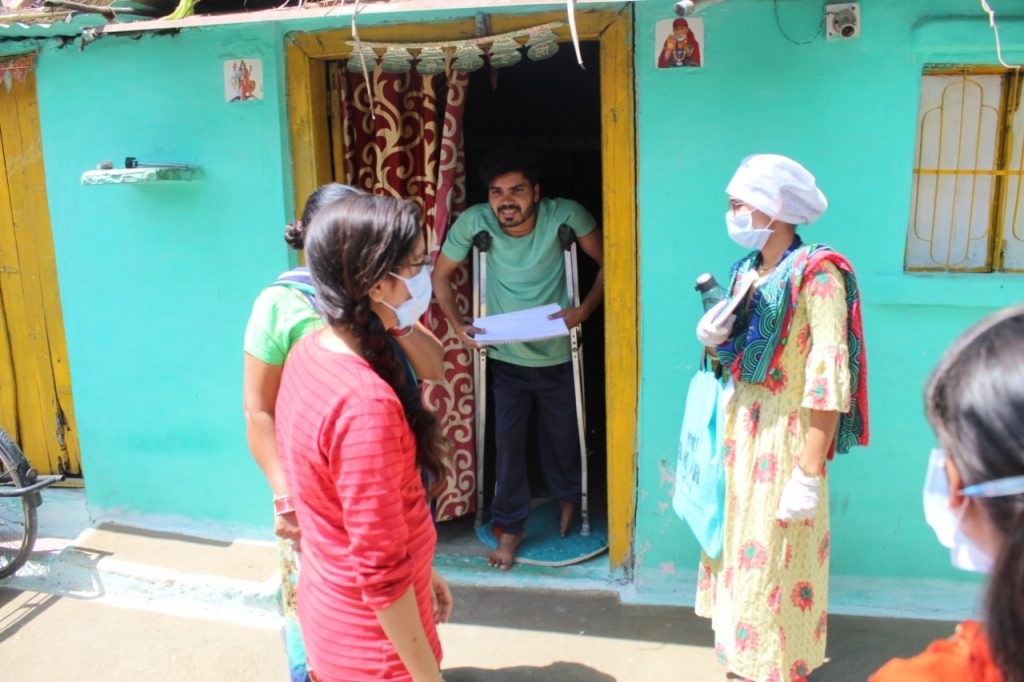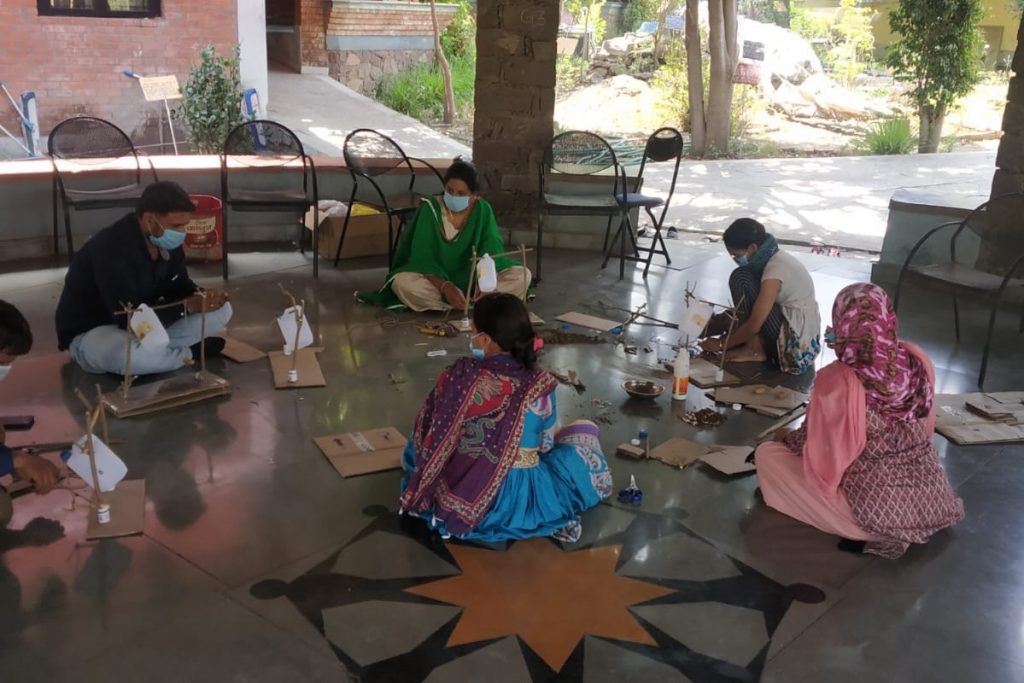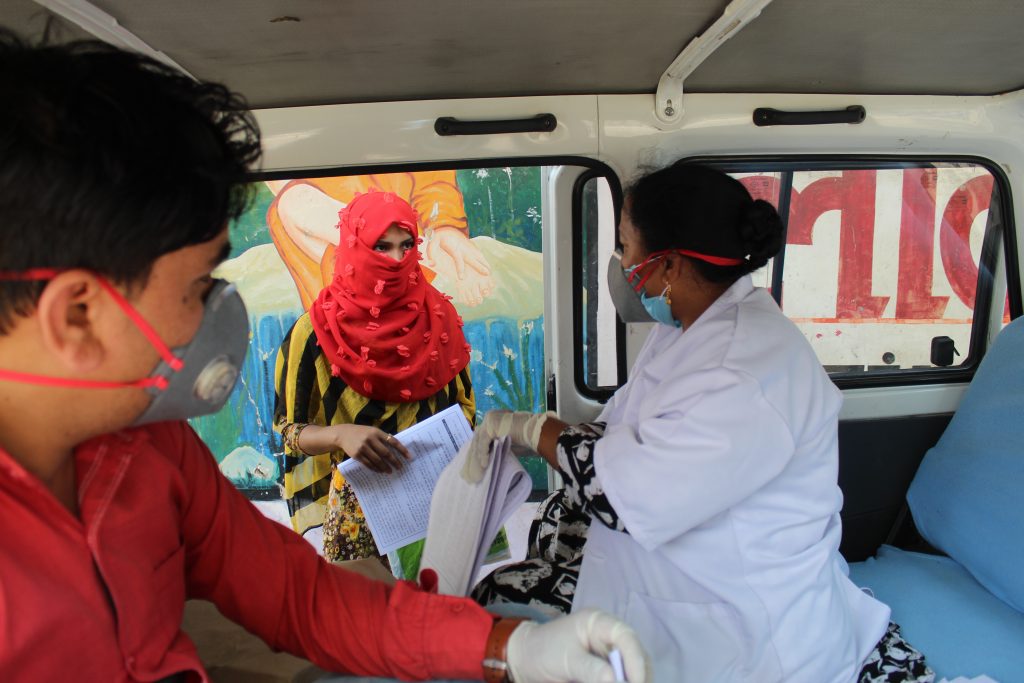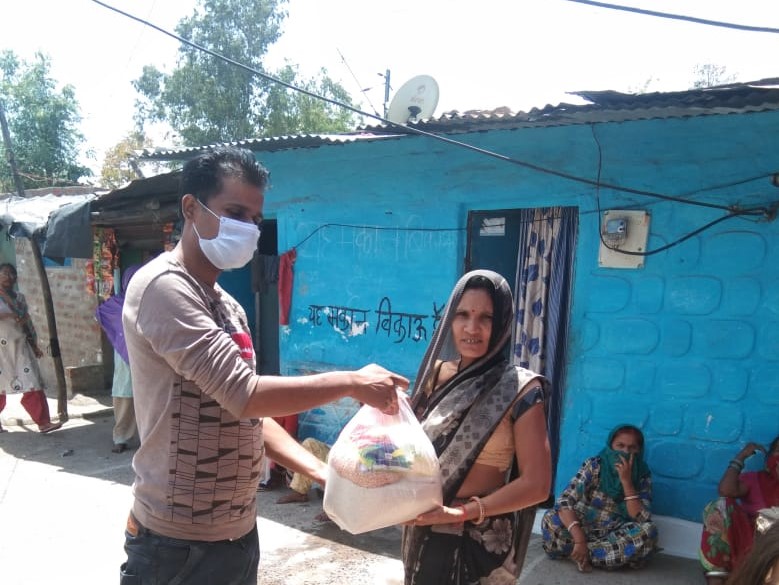As of today, the number of survivors of the Bhopal gas disaster who have died of Covid-19 currently stands at 12. Due to the prevalence of respiratory issues and other long-term health conditions resulting from gas exposure, thousands more remain vulnerable to the spread of the virus. These existing health conditions, along with the age demographic of survivors, means those living in the communities around the abandoned Union Carbide factory are among the most vulnerable on earth. Despite the national lockdown the government put in place six weeks ago, cramped living conditions and open dwellings make preventative measures like self-isolation a near-impossibility in many affected communities. In the absence of state government support, staff and volunteers from the Sambhavna and Chingari clinics have implemented a range of measures to protect survivors from coronavirus and safeguard local residents. Many of these measures are unique innovations that demonstrate the incredible compassion and community-mindedness of the people of Bhopal and we hope that sharing them may help those in other vulnerable communities around the world.
The Community Volunteer Program
Even before the coronavirus outbreak, there was a community volunteer program in place at the Sambhavna clinic, with volunteers playing an essential role in the day-to-day running of the clinic. As well as assisting staff and patients, volunteers take care of the community gardens and help to maintain the centre. Since the coronavirus lockdown, Sambhavna has built upon this existing volunteer program by reaching out to members of local communities and sharing both information about the virus and basic medical training which will allow volunteers to recognise and report symptoms. As of today, there is a huge network of local volunteers in place, raising awareness of coronavirus and helping to ensure that those with symptoms are referred to our staff members and local hospitals for diagnosis and treatment.

Public Hand-washing Stations
As soon as the news of coronavirus broke and before a single case was reported in the city, staff and volunteers at the Sambhavna clinic came up with an innovative design for simple handwashing stations that could be installed throughout the city for use by the public. These hand-washing stations are made by suspending a plastic bottle full of water from a simple wooden frame, then attaching a string from the bottle to another piece of wood at ground level, allowing them to be operated by foot, much like a pedal-bin. The stations are hand-built by volunteers at the clinic and then installed in local communities for public use, with volunteers in charge of their maintenance and ensuring they remain full. These stations, made from a few sticks and some plastic water bottles, are currently all that stand between the people of Bhopal and a virus that could decimate a whole community. This simple innovation may already have helped to save countless lives.

Local WhatsApp Network
Due to the announcement of a nation-wide lockdown and the incredibly contagious nature of Covid-19, as of last month it was no longer feasible Sambhavna staff to treat coronavirus patients at the clinic. In order to reach those with symptoms at home, a WhatsApp network was setup and all those in the surrounding communities with access were encouraged to join. Within a week the group had more than 50,000 members, a staggering achievement in such a short space of time. Those in the group now receive news and updates about the spread of the virus in the city, but crucially can also report symptoms and arrange a home visit by a staff member or community volunteer to determine whether they require medical treatment. If they fall into the critically at-risk group or are displaying symptoms, they are referred to specialist hospitals in the city for immediate treatment.

Home Visits and Deliveries
In the absence of state government support for those contracting coronavirus at home, it has fallen upon organisations such as our own Sambhavna and Chingari clinics, as well as the Bhopali people themselves, to provide crucial support and safeguard the vulnerable in the city from the effects of Covid-19. The community volunteer program and WhatsApp groups allow our staff and volunteers to reach those in the city who require medical assistance or are unable to access food, medicine and other necessary supplies. In addition to the Sambhavna staff, drivers from Chingari are using the clinic’s vans for home visits and to deliver food and medicine to the vulnerable.

This incredible communal effort to safeguard survivors and residents in Bhopal is truly inspiring and we hope that some of these measures may also prove helpful for those who find themselves in similar situations and without access to outside support elsewhere in the world. As always, stay safe and we will provide more updates soon.


